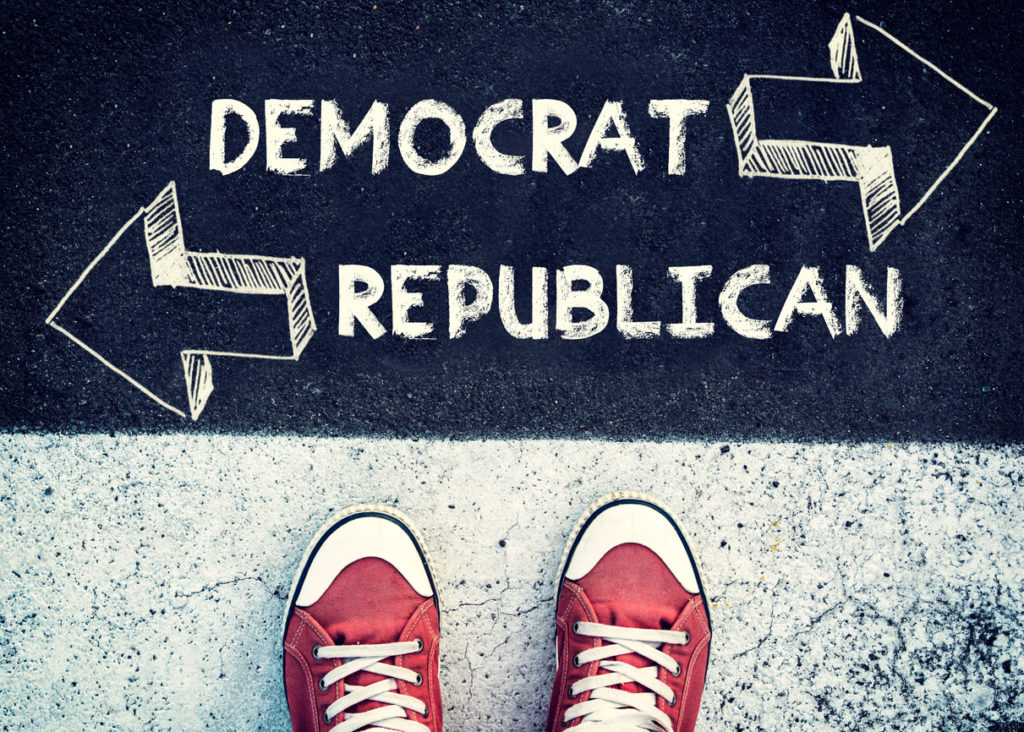
In the 2018 midterm election a surge in younger voters ages 18-29 helped Democrats retake the House. Many Democrats are counting on an increase in Gen Z turnout to carry them to victory in 2020. Afterall, they’re the students of Parkland, they’re one of the most diverse generations, and they’re passionate about their impact on the world. But that doesn’t necessarily mean they’ll vote for the Democratic Party, and the Democrats would be short-sighted to assume they’ll get their vote.
A recent Zogby poll found Trump’s approval rating among Zs is at 49% and a number of other studies show a conservative swing among Gen Zs. How could this be? Compared to previous generations, Gen Zs tend to be fluid and rarely fit into one box. This holds true for their political identities too. Gen Zs are a generation that is not going to align so neatly into Democrat, Republican, and Independent boxes. Yet, polls, by definition, place them in boxes.
To understand Gen Zs and politics and some polls which seem to indicate a conservative swing among Zs, you must first understand where Zs are coming from. There are two major influences at play here; Zs grew up during a recession and they are radical individualists.
Growing up in a recession, Zs saw their parents struggle and watched as the Millennials adjusted to a life where the jobs and promotions they were expecting never showed up. As a result, Zs are valuing financial stability over pursuing their passions and they’re more pragmatic than Millennials were at their age. They are taking a close look at the economic positions of politicians through the lens of recession. Trump’s approval ratings among Zs are likely largely tied to the economy and the financial stability of conservatism.
Meanwhile, as the most diverse generation to date and influenced by their independent-minded Gen X parents, Zs are an open-minded generation that values personal expression, radical inclusion, and individualism. They embrace the ability to move in and out and between labels as they see fit. For example, they’re increasingly challenging conventional gender stereotypes and are less hung up about sexual orientation and gender labels than previous generations.
As part of this open-mindedness, they actively seek out opposing ideas. For example, we recently spoke with Dante, a 16-year-old who supports the progressive Andrew Yang, yet spends time on Fox News and with conservative YouTube personalities to round out his understanding of the issues.
“Nobody is making conclusions for themselves,” he said. “I feel like we just need to filter that out of our news. I try to go with a diverse perspective of different opinions, but mostly just looking at the facts and making my own conclusions.”
Similarly, back in January we conducted a nationally representative online survey of 1,000 Gen Zs age 13-22 and found that 70% like Alexandria Ocasio-Cortez. When we asked why, the top reasons were that she’s real and relatable (43%) and she’s bold and outspoken (38%). Further down the list, 24% said they like her because she cares about the issues that they care about. Zs like her because she’s taking a stand, even if they don’t necessarily agree with some of the stands that she’s taking.
“I like her mostly because she kind of stands up for what she believes in without acknowledging, or she does acknowledge, but without directly responding to people who just disagree with her,” 16-year-old Michael told us. “Because there’s a huge wall of people who just will disagree with all of her views. But she still stands through that and gets her points out and doesn’t shy away from being opinionated, which is always important.”
“I think she’s feisty, fierce, strong. She knows what she wants and she’s going to go get it,” Ava, another 16-year-old told us about Ocasio-Cortez. “She’s sticking to her roots. They made fun of her at SNL, like you wear lipstick and you’re loud in Congress or whatever, the Senate. She’s like, ‘Ah! Yeah, that’s right.’ In real life. She’s like, ‘Yeah, that’s right.’ I like that.”
For Zs, labels are limiting and don’t tell the whole story of what they’re behind. This new era of massive divisiveness is all Zs know about politics and it is antithetical to who they are. Ultimately, who they vote for is who they think will best help them make the world a better place, and they are going to make that determination without mindlessly checking the boxes.






